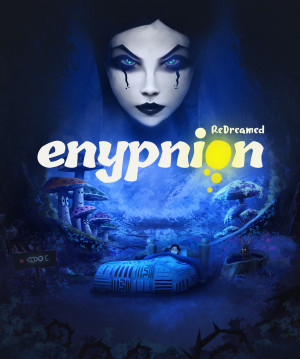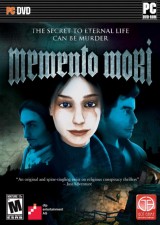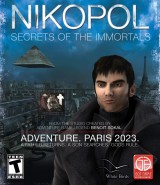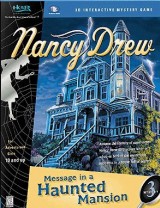Review for Universe for Sale
Lila can create universes — tiny ones that can fit in the palm of your hand. Sometimes these universes are teeming with new life, sometimes they’re crackling with energy, and sometimes they’re barren and desolate. She creates all of them, and she sells them from a stall in a market on Jupiter.
The Master is a cultist, someone who has dedicated his life to a god that allowed him a glimpse of the other side. He altered his physical appearance, little by little, until he’s not much more than a skeleton, in order to achieve enlightenment and leave his worldly desires behind. He has traveled throughout the galaxy to attain knowledge, but now he finds himself living life out of order.
These are the two playable characters of Universe for Sale, an immensely weird but equally captivating game by Tmesis Studio. There are plenty of unanswered questions from the beginning. Why is the Master always looking for Lila? Why is Lila able to create small universes? Why does she have tentacles for hair? These questions — and more — will keep you playing, as will the unique art style and gameplay. Everything about this point-and-click adventure is utterly engrossing, and I could have played it for many more hours than the five that it took me to complete it.
Universe for Sale is largely narrative. You play as both Lila and the Master, switching between them. Lila’s sections are at once affecting and mundane. They alternate between the past — when she was a little girl being read a bedtime story by her parents about the creation of the universe — and the present, where she sells the universes she creates to passersby in the Jupiter market. The Master’s sections are where the bulk of the story is told. He’s having a difficult go of it, as he’s mysteriously blacking out and waking up in the market at different points in time. His goal is always to find Lila, but he’s experiencing his story out of sequence, which often leads to confusion for him. Everyone thinks he’s kind of flaky, and he just rolls with the punches and tries to be there for Lila when she needs him.
You might worry that it would be difficult to keep up with the narrative since it’s presented out of order, but I had no trouble piecing together the plot. The story is structured in a way that feels typical despite its strange sequence of events. While it can be a little jarring at first, there is still a build-up leading to a climax, and information is slowly revealed in bits as the game progresses. It feels natural, almost a masterclass in how to tell an unconventional tale.
The world of Universe for Sale is carefully built. It’s set far into the future, when Earth has been ravaged by war and climate change. Humans have spread across the galaxy, many of them settling on Jupiter, where they’re slowly but surely making the same mistakes they made before. The planets are governed by a religious faction of clerics, and I won’t get into it too much here in order to avoid spoilers, but it’s just as shady as you would expect that kind of situation to be. There’s quite a bit of unexplained phenomena in the game, like the ability for people to detach their body parts and still live as normal, which is a common practice of the Cult of Detachment. The Master himself has detached himself to the point where he appears skeletal. It turns out that the bounds of Earth were keeping us from a whole wide universe filled with inexplicable — and slightly morbid — wonders.
The gameplay consists of minigames that pop up when some sort of action is required. There are minigames for repairing a broken wind turbine, operating a complex gun, and navigating an asteroid field to find scrap, to name a few. Lila’s universe creation is a minigame in and of itself, where you can combine different elements to form intricate designs that she describes in detail. I loved seeing what kind of microcosms I’d come up with in these sections. Your clients will tell you what they want, and creating an appropriate response is often challenging. I struggled with some of the orders. Universe creation aside, none of the other minigames are particularly difficult, but they’re fun little sidesteps from the main narrative.
You control Lila and the Master with classic point-and-click mechanics. The screen is side-scrolling at times, and at other times there are static screens that need to be loaded. Lila and the Master can interact with various items in the environment or speak with other characters, indicated by hand and chat bubble icons respectively. There is no inventory in the game. You won’t be picking up items and combining them or using them on other objects in the surroundings. Everything is confined to basic interaction, pointing and clicking. It’s as simple as that, to the point where “visual novel” might be the most apt description for this game.
I have to lend a paragraph to the art style. It’s reminiscent of ‘90s Saturday morning cartoons, bright and colorful and full of expression. Every character you can interact with has a portrait, and discovering each of them is like unwrapping a small gift. In moments when Lila and the Master are drinking tea, a common pastime on Jupiter, their portraits include little tea-drinking animations, which gave me the warm fuzzies. The environments are incredibly detailed, and I often spent a few minutes just taking in everything when I was presented with a new screen. Lila’s home is a particular favorite, a derelict spacecraft that she can decorate with plants and pillows and other knick-knacks as the game progresses.
Music doesn’t play a large part in Universe for Sale, with the most memorable song being the jaunty theme that plays during Lila’s universe creation, something you have the ability to turn off if you’d rather craft in silence. The sound design is highly noticeable, however. The game is full of atmospheric noises, from rain and wind to the chatter of the marketplace and echoing footfalls on a church floor. There are sound effects accompanying the dialogue, and I found the Master’s chattering noises particularly satisfying and fitting for someone who’s mostly made of bones.
Universe for Sale is unlike anything I’ve ever played, and I absolutely love it when I can say that about a game. While the story may seem overwhelming at first, it unravels masterfully, and in the end it’ll leave you feeling like it was really quite simple after all. A touching message of healing from grief and moving on with life lies beneath the intricacies of governmental conspiracy and environmental destruction. This one gets my highest recommendation for anyone who’s looking for a good story to sink into. I believe that more than just sci-fi fans will enjoy Universe for Sale, as it has a universal appeal and uniqueness that makes it worth checking out for anyone who admires narrative games.




__big.jpeg)

























